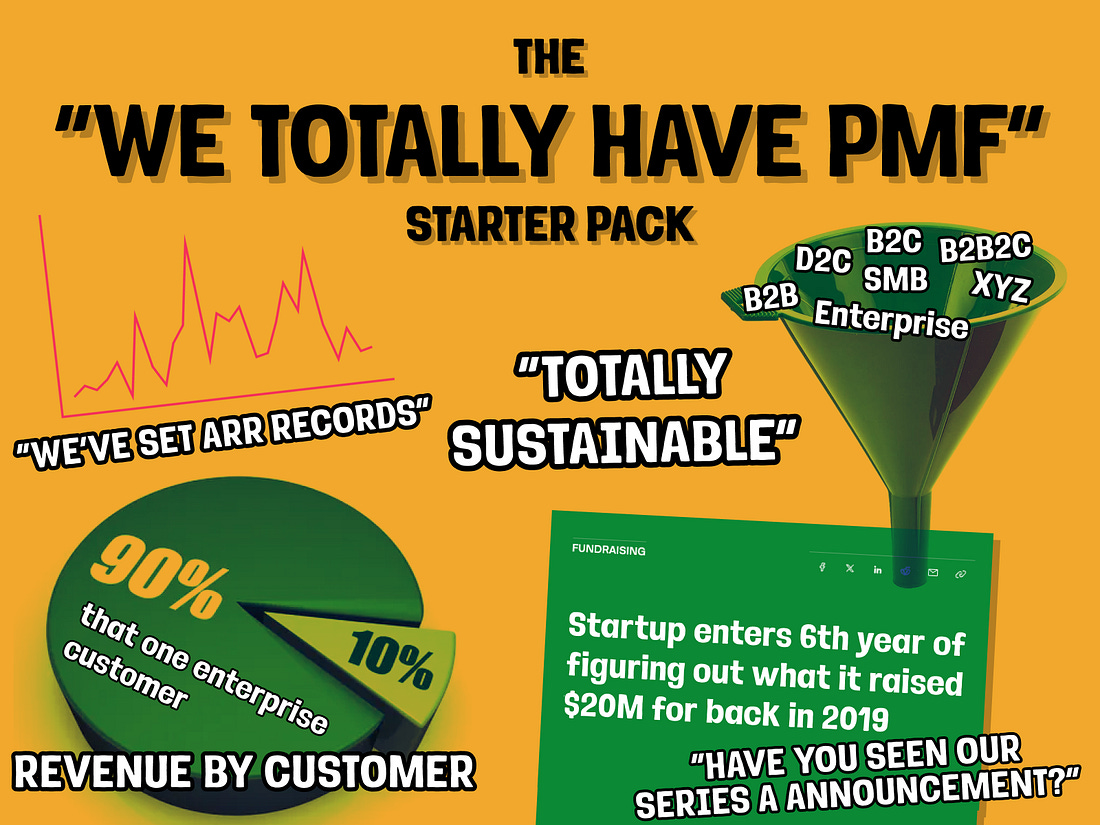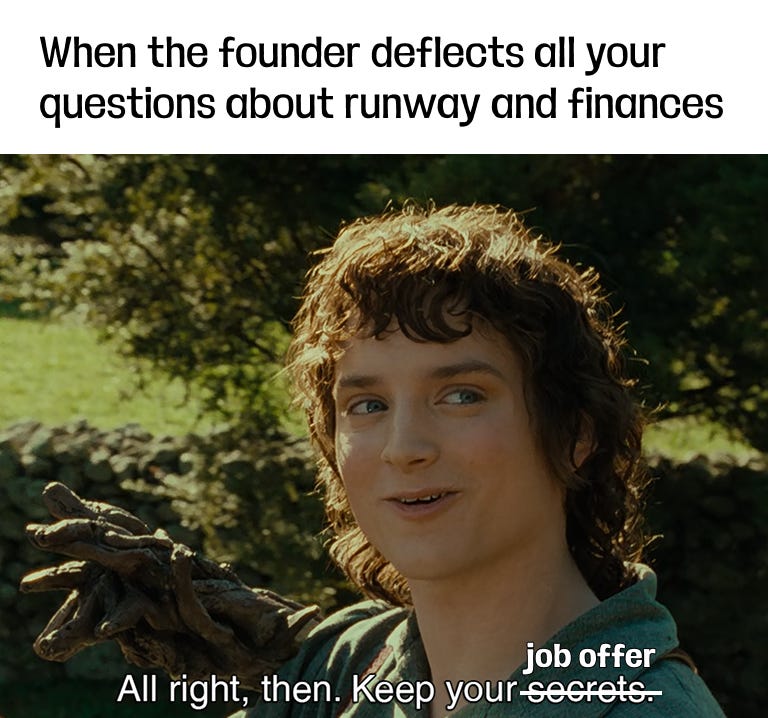Job Interview Questions Engineers Should Ask But Dont
Job interview questions engineers should ask (but don't)...or how to join the right startup and stand out from the crowdWe interview a lot of people at PostHog (around 2,000 in the last 12 months) and two trends stand out:
What follows are some questions we wish people would ask us more often. They come with the following caveats:
Does the company have product-market fit?This is the single most important thing a company can do to survive and grow, so you need to figure out if a startup already has it, or how likely they are to get there. There's an entire internet of writing on how to find product-market fit, and how to measure it, but broadly speaking you need three things:
This is sometimes referred to as the product-market fit trifecta. Don’t just ask "Do you have product-market fit?" Probe the theme. When interviewing at a very early-stage startup (e.g. one-year-old or less) that is less likely to have product-market fit already, consider questions like:
It's ok if their answers show they don't have product-market fit yet. These questions are designed to figure out whether they can get there. Add the following questions to the mix when talking to slightly older startups (e.g. two-years-old or more), who are more likely to have product-market fit:
Low user growth, or evasiveness on these questions, is a sign they don't have product-market fit. Some founders will think or say, either intentionally or through self-delusion, that they have it when they don't. The ones that succeed are either:
Avoid startups and founders who:
Can the company survive?Startups that don't have product-market fit will find it hard to raise more money, so it's important they have enough runway (aka money in the bank!) to get there. This means you need to find out how much runway a company has, and whether their spending is reasonable. You can sum this up in just one question... "Are you default alive?" Coined by YC godfather, Paul Graham, being default alive means a company will become profitable before it runs out of money if its current expenses and growth rate remain constant. Why does this matter so much? Graham sums this up perfectly in his essay:
Follow-up with questions like:
Any well-prepared founder should be able to answer these. What constitutes "enough runway" will depend on the company and your attitude to risk. A company that has strong product-market fit and high growth can cope with a shorter runway than one that has neither of these things. It's important to consider the fundraising environment here, too. Right now, it's much easier to raise money for AI-based products. A capital intensive startup that isn't AI is an extra tough sell unless they already have explosive growth and revenue. Avoid companies that:
How can you make an impact?Most candidates will ask questions along this theme, but there are good and bad ways to go about it. Questions like "What keeps you up at night?" might reveal what the hardest challenge will be, and where you could add the most value if you joined, for example. In contrast, a question like "What will I be working on?" indicates you're looking for direction. Startups should, for the most part, be looking for people who proactively find and solve problems. You could also ask:
Good founders should be talking to users all the time – good engineers should, btw! If they can't instantly articulate what users want, or their biggest pain points, it's a sign they're not doing this enough and are unlikely to succeed.
How strong is the team?To evaluate how strong the team is, consider questions like:
You're trying to understand if they view engineering as a cost center (aka a higher chance you'll be miserable there!) or not. Thoughtful answers about how to hire and pay people indicate this is prioritized. Sharing more information (e.g. board slides) rather than less shows trust. Avoid founders who instantly talk about the big companies their team came from, rather than the qualities they look for in hires. Unless you're interviewing at OpenAI et al, a large number of ex-FAANG/MAANG people suggests:
Neither are a strong sign of success for a startup.
Do they have a winning culture?Just asking "what's the culture like?" is a low leverage question that will net you broad, vague answers. Instead, ask questions like:
You're looking for specific, thoughtful answers that show a level of intentionality here. Avoid companies where:
What does the future look like?It's important to ask founders about their motivations and long-term goals, and whether they align with your own. To do so, ask questions like:
Founders who expect to sell their company are likely to make short-term decisions and exit early if they can. This is a valid strategy for many startups, but you should know to expect this before you join. Follow-up with "What's the company strategy and why?" You are looking for a simple answer, otherwise the company and the product will end up a mess. In the early days of PostHog, for example, our strategy would be as simple as "Nail X" – e.g. "Nail Self Serve", or "Nail Enterprise Customers". Even now, five years and 100+ people later, our strategy can be summed up in three easy to understand points:
Finally, early-stage companies often fall apart because the founders break up, so I'd recommend asking: "How do you and the other founders avoid falling out?" See How to not break up with your cofounder for what to look for here.
🧠 What we’ve been reading (and writing)
😎 Cool tech jobs
1 Obviously there are lots of very talented people at these companies. The point here isn’t “hiring from MAANG companies is bad” but that startups shouldn’t hire people based mainly on where they worked before. |




